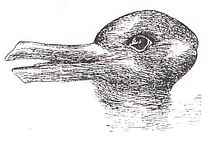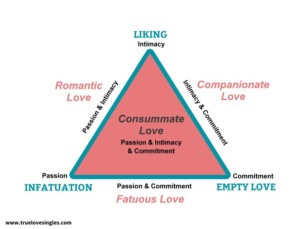Definition of Love – What Everyone Is Curious About


It’s obvious, people have many different interpretations of love. But what is the best definition of love, if it can be defined at all? Some would say that love is the greatest feeling, or a universal truth, or that their mate is absolutely lovable, or that love is all you need. Some even say that they only love themselves. Oh sure, no problem.
The word love is much abused in conversations as it is often mentioned without much definition or in a context only understood by the speaker. There is my love for you, your love for me, our love for each other, true love, empty love, real love, God’s love, unconditional love, cheap love, lasting love, sacrificial love, dirty love, and then some. This is forcing a hearer to make up an interpretation, which easily leads to misunderstandings.
“What do you mean? You said that you truly loved me.” “Yes, but that was last week!” Well, it’s more subtle than that, but you get the point. In the heat of a personal conversation, people often speak before they think. It is actually hard to say what one means, and mean what one says.
I do care about that. Yet, the labels we give to the loves of which we are capable — varied and vigorously transfigured from one kind into another and back again — cannot begin to contain the richness of feeling that can flow between two hearts and the bodies that contain them.
Even if we cannot come up with a rock-solid definition, we still must use the word successfully. Everybody understands at least somehow what we may mean when we talk about love, and we seem able to clearly identify and correct inaccurate uses of the word.
Still, it helps using an expression such as “love” succinctly and consistently so as to avoid fatal misunderstandings (in the end, Romeo and Juliet just die). Let’s try…
Love is Shorthand for an Experience

Love, first of all, is a word. As a noun, any word is shorthand expression for something like a concept or an experience. Concepts can be rather complex when unpacked! Experiences, just as well, may not exactly be simple to explain. But to explain experiences, we use concepts as expressed in words and sentences.
To make a long story short, allow me to just say that love, in the context of pair-bonding, really is shorthand for the experience of a certain relationship between at least two sentient beings. In other words, we do not really experience love as itself, but we experience something which we then label as love. Love, then, is not a real, physical entity in itself, not a thing out there that perhaps “flows” between two lovers.
Strange enough, it seems that humans can be satisfied by love even without being able to explain it, even without knowing why. Is it love? “Who knows, who cares,” they might say, “for as long as it lasts.”
But it helps to have an understanding of love that is “more-than-skin-deep.”
4 Categories of Love
Traditionally, love has been distinguished in four categories:
- Eros: erotic, passionate love;
- Philia: love of friends and equals;
- Storge: love of parents for children;
- Agape: love of mankind.
On this site, truelovesingles.com, we care less about self-love or the love someone may have for their pet. What matters to us, and perhaps to you as the reader, is Eros – the erotic, passionate love – in the context of eventually leading to a bonded relationship between two singles.
Love is not always Reciprocal
It obviously matters that your love for another is reciprocated. But that is not always the case. You may really love someone in a romantic fashion, but that person does not feel the same about you. Tragic as it may seem, you then either need to try to kindle a little fire of romantic love – that is enchant that other, or let the person go if he or she cannot come to feel the same about you. The good news is that sometimes a little romantic fire might grow into real love. You never know unless you tried.
In any case, we may ask if love can be willed or if it is by necessity an involuntary experience? There perhaps is no simple answer. I have met couples who have been introduced to each other in a classical matching, and who tried and eventually found each other in seemingly real love. Rare, but not impossible!
What makes an Experience worthy of being called Love

Romantic passion is a vital driving force in people’s lives, without which we possibly would not be around. Interpersonal intimacy allows people to express their vanity or frailty without fear, to create a blissful state of mind. When people cannot help but say “I love you,” a decision is announced that likely leads to a committed relationship. These magical words are like the cherry on the cake!
Psychologist Robert Sternberg wrote extensively about these three elements of love: passion, intimacy, and decision/commitment. This model of love is hard to improve on and that is why we “love” to promote this understanding. It gives promising singles a baseline to start courtship conversations with other promising singles.
Most dramatic literature (Shakespeare’s Romeo and Juliet, etc.) entertains what we call romantic love – stories often with tragic endings. Countless of day-to-day publications make money by selling talk about romantic love. Romantic love is just really tantalizing.
And that gets too many people to go on dating sites looking for romantic love alone. Sure, love needs to start somewhere, and why not with romantic love. But know that romantic love is not all there is to love!
The registration code is: passion
Free registration!

Hello